
Criminalizing Protest Has Become a Tool for Combating Rallies
Experts Studied Use of Law Criminalizing Violence Against Authorities
Anastasia Kornya
Vedomosti
February 28, 2019
Defending Protest (Apologiya protesta), an organization that provides assistance to people detained at protest rallies, has analyzed the use of Russian Criminal Code Article 318 against people involved in protest events. Article 318 makes violence against authorities a criminal offense. Between 2009 and 2017, a total of 65,046 people were convicted on this charge. Typically, the charge has been filed against people involved in drunken brawls broken up by police units or people involved in roadside altercations with traffic police. But Article 318 has also become the primary tool for charging activists with using violence against the security forces.
Demonstrative Cruelty
There are no separate figures for protesters charged with violating Article 318, but between 2013 and 2015 the number of people convicted on such charges rose annually by 600 to 800 people before decreasing slightly. The authors of Defending Protest’s report argue this increase stemmed from a rise in the number of protests and protesters in 2012: it was on May 6, 2012, that the March of the Millions took place, leading to the show trials of the Bolotnaya Square Case. After the protests peaked in 2015, there was a cooling off period, and the number of convictions nearly returned to their 2009 levels. However, there has been a growing tendency to sentence people convicted under Article 318 to actual prison time.
The experts note that when defendants confess their guilt and are tried in special expedited trials, it should theoretically mitigate their punishments, but in reality it does not increase chances they will be sentenced to probation or other non-carceral penalties. Besides, courts in Moscow have made a point of not invoking the option, stipulated by law, of dismissing cases because the parties have been reconciled or defendants have sincerely apologized for their crimes, since, in the opinion of Moscow judges, cases cannot be dismissed in so-called double-ended crimes, crimes committed not only against the victim as such but also against law and order.
The report notes that customary Russian methods of criminal investigation and judicial procedure have now been applied to the cases of grassroots activists, including double standards in weighing evidence, the presumption that law enforcement officers tell the truth, and giving priority to testimony made by suspects prior to their trials. The experts note the charges in such cases can be trumped up easily. The key evidence in these cases is the testimony of the victim and witnesses, all of them police officers. If necessary, their statements can be coordinated and entered into the court record in literally identical form.
Nonpunishable Violence
The flip side of the process is the inability to hold police officers criminally liable for using violence against demonstrators, says Alexei Glukhov, head of Defending Protest. If justice is served, this happens only if and when the European Court of Human Rights rules on a case, although Russian policemen and security services officers have been dispersing peaceful demonstrations and detaining grassroots activists and random bystanders with ever-greater ferocity. But nearly the only well-known case in which a Russian police officer was held criminally liable for violence against protesters was the case of Vadim Boyko, the so-called Pearl Sergeant, who hit a man over the head with a rubber truncheon at a demonstration in Petersburg in July 2010. In 2011, Sergeant Boyko was sentenced to three and half years of probation.
It is common practice to reject complaints filed by victims of police violence by claiming they are means of self-defense against the counter charges faced by the complainants. Thus, in the formal refusal to open a criminal case based on the complaint filed by lawyer Mikhail Benyash, the police investigator wrote, “M.M. Benyash’s testimony should be treated skeptically because he is thus attempting to build his own defense against criminal charges and thereby avoid prosecution.” In turn, the police officers who denied they had beaten Benyash testified he had beaten his own head against the window, door, and other parts of the car in which they abducted him, and when they dragged him out of the car, he beat his head against the pavement.
No less noteworthy were the reasons police investigators gave for refusing to open a criminal case based on a complaint filed by Danil Bolshakov and Daniil Markelov of Krasnoyarsk. Their testimony was not corroborated since Markelov was a supporter of Alexei Navalny, “who is a well-known opponent of the leadership of the Russian Federation, as headed by President V.V. Putin.”
Crackdown
Generally, the police crackdown has been intensifying. Lawyer Dmitry Agranovsky agreed Article 318 has been used to intimidate people.
“I would encourage everyone to compare the verdicts in the Bolotnaya Square Case, in which a demonstrator brushed away a policeman’s arm and was sentenced to three and a half years in prison, with the sentences handed down in the wake of the recent unrest in France, in which protesters have been fined or sentenced to a few months in jail at most,” he said.
In fact, Agranovsky explained, any physical contact with Russian police would result in the “offender” being charged under Article 318. Ultimately, people have become wary of attending protest rallies, although, formally speaking, Russia has signed all the relevant international conventions encouraging peaceful protest.
Agranovsky recalled that ex-Russian MP Vladimir Bessonov was stripped of the right to engage in politics after he was charged with using violence against police officers at a protest rally.
Opposition politician Dmitry Gudkov agreed the police crackdown has intensified.
“There is a desire to extinguish protests, and that is something you can only do with a stick. The powers that be have run out of carrots,” he said.
Gudkov argued all the available tools have been brought into play in order to artificially criminalize protest. For example, the so-called Ildar Dadin article in the criminal code had been revived after it was all but outlawed by the Russian Constitutional Court. The article criminalizes repeated involvement in “unauthorized” protest rallies.
Translation and photo by the Russian Reader
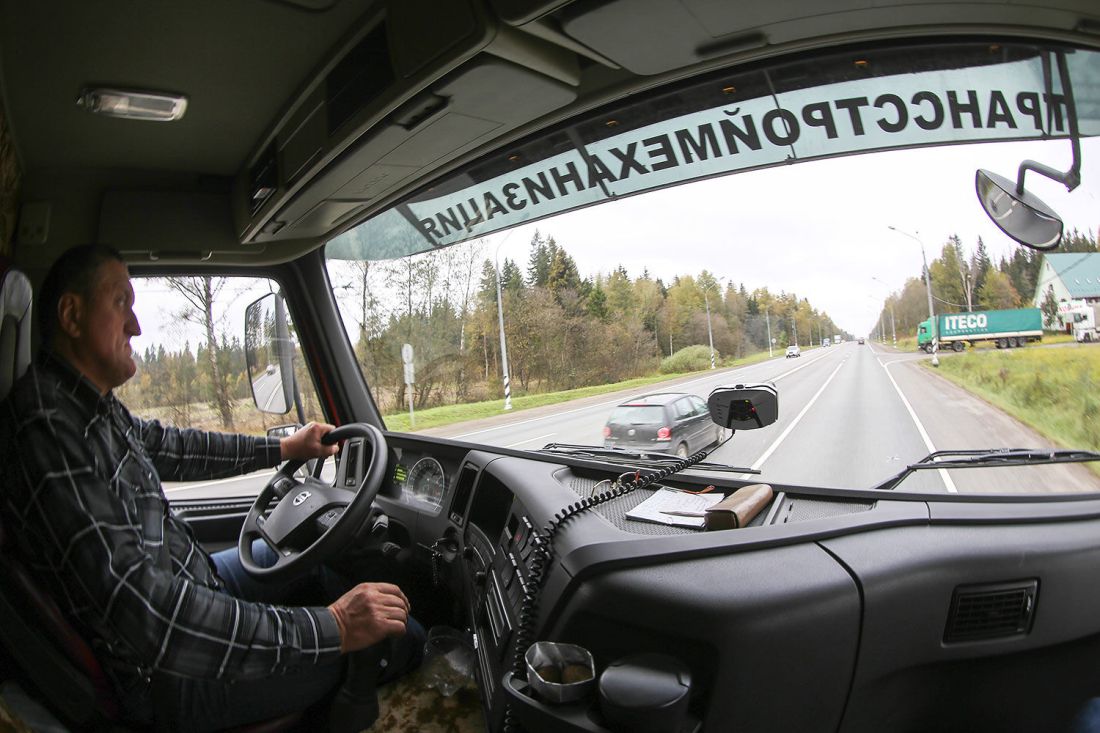 [Three] years ago, on November 15, 2015, Russian authorities launched the Plato system (“Plato” is an acronym for “payment for a ton” in Russian) to collect tolls from owners of heavy-duty trucks traveling on federal highways. The authorities claimed their goal was to compensate for the damage the trucks caused to roads. It was decided the toll would be applied to owners of trucks weighing over twelve tons. Photo courtesy of Maxim Stulov/Vedomosti and RBC
[Three] years ago, on November 15, 2015, Russian authorities launched the Plato system (“Plato” is an acronym for “payment for a ton” in Russian) to collect tolls from owners of heavy-duty trucks traveling on federal highways. The authorities claimed their goal was to compensate for the damage the trucks caused to roads. It was decided the toll would be applied to owners of trucks weighing over twelve tons. Photo courtesy of Maxim Stulov/Vedomosti and RBC 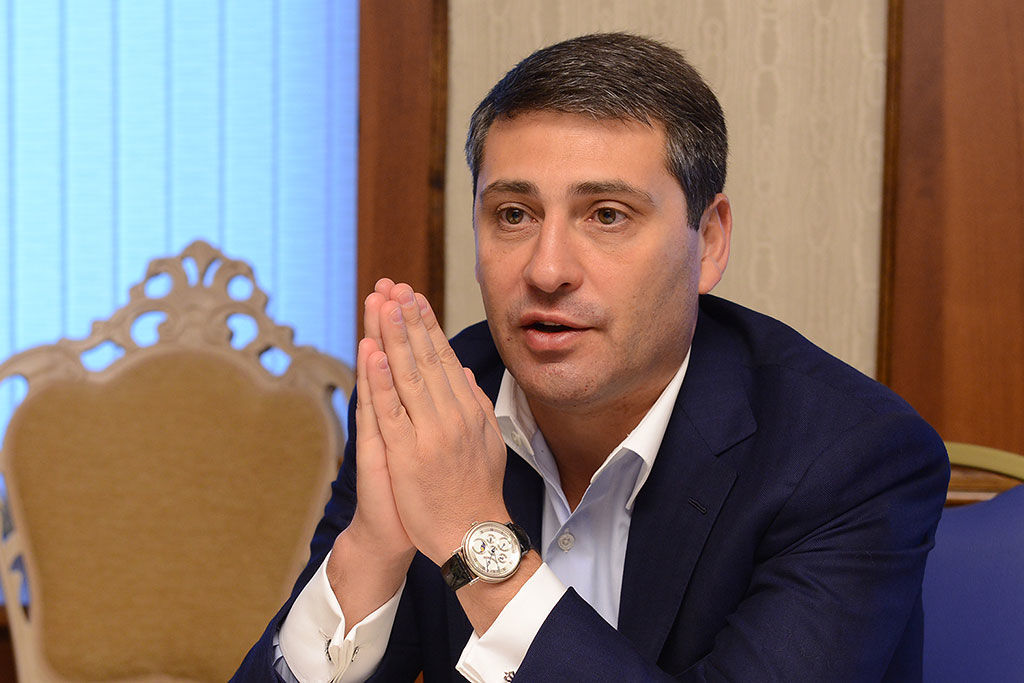 The right to develop and implement Plato was awarded to
The right to develop and implement Plato was awarded to 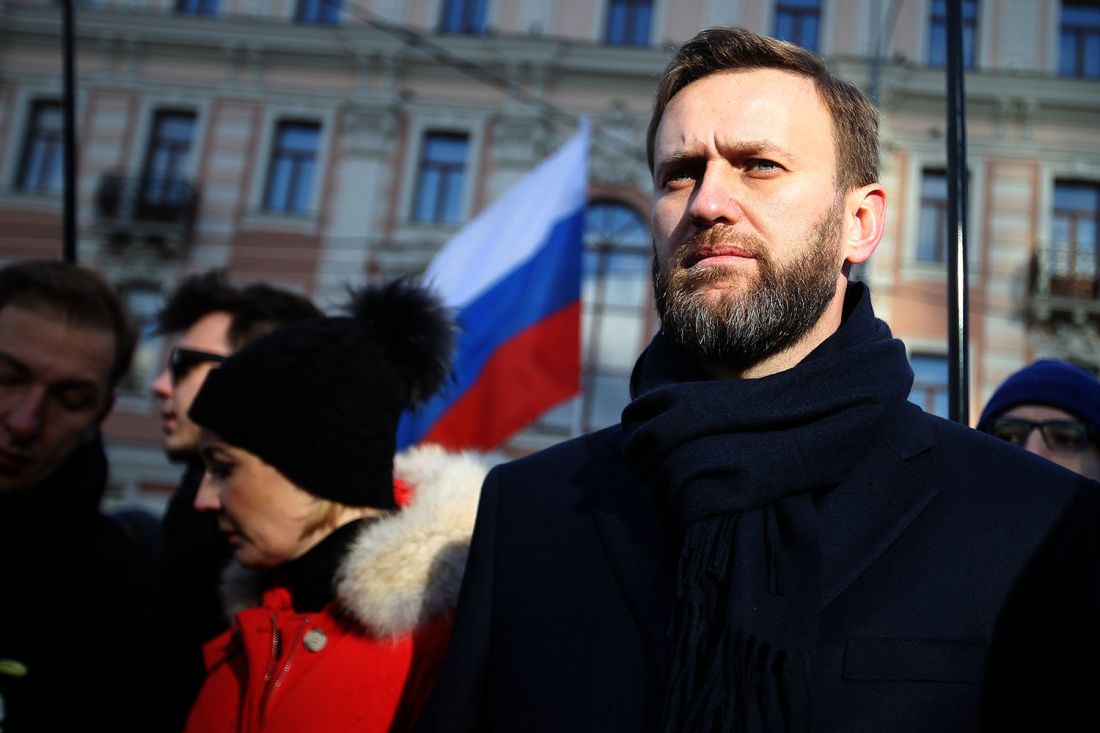 Opposition politician Alexei Navalny and Anti-Corruption Foundation (FBK) lawyer Ivan Zhdanov asked that the courts declare the government’s agreement with RT Invest Transport Systems null and void. Their lawsuit was rejected first by the Moscow Court of Arbitration, and later by the Russian Constitutional Court. Photo of Alexei Navalny courtesy of Yevgeny Razumny/Vedomosti and RBC
Opposition politician Alexei Navalny and Anti-Corruption Foundation (FBK) lawyer Ivan Zhdanov asked that the courts declare the government’s agreement with RT Invest Transport Systems null and void. Their lawsuit was rejected first by the Moscow Court of Arbitration, and later by the Russian Constitutional Court. Photo of Alexei Navalny courtesy of Yevgeny Razumny/Vedomosti and RBC 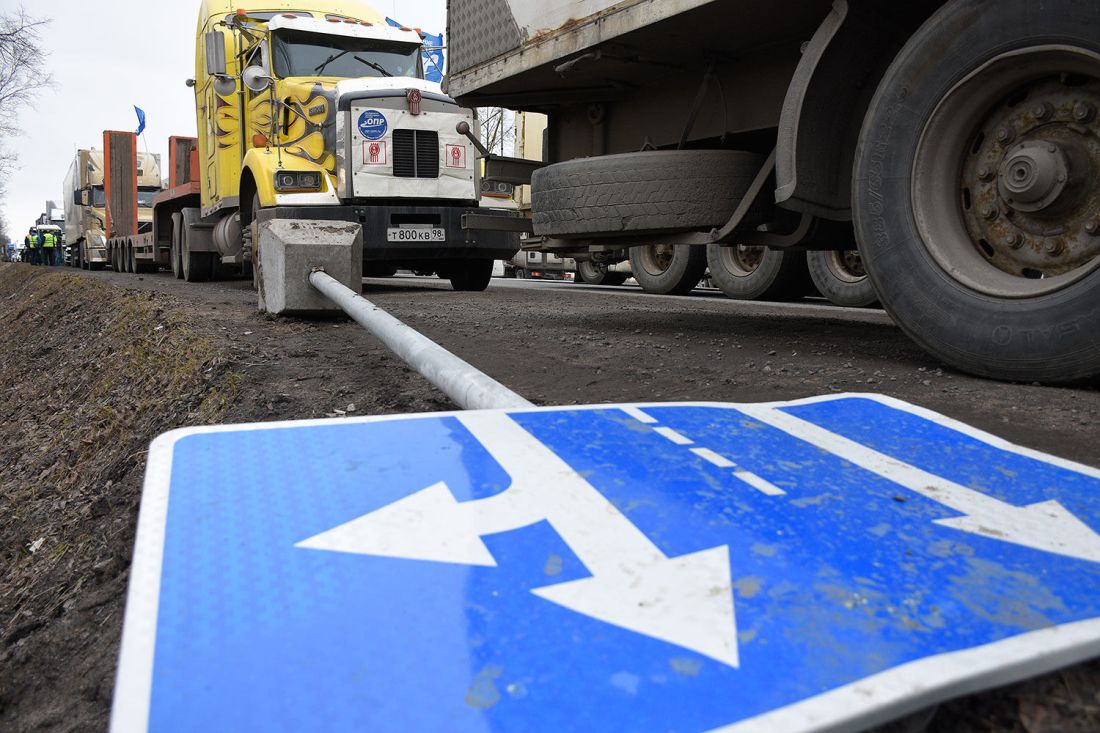 Truckers in forty Russian regions protested against Plato in November 2016. They demanded Plato be turned off, a three-year moratorium imposed on its use, and the system be tested for at least a year. Photo by Yevgeny Yegorov/Vedomosti and RBC
Truckers in forty Russian regions protested against Plato in November 2016. They demanded Plato be turned off, a three-year moratorium imposed on its use, and the system be tested for at least a year. Photo by Yevgeny Yegorov/Vedomosti and RBC 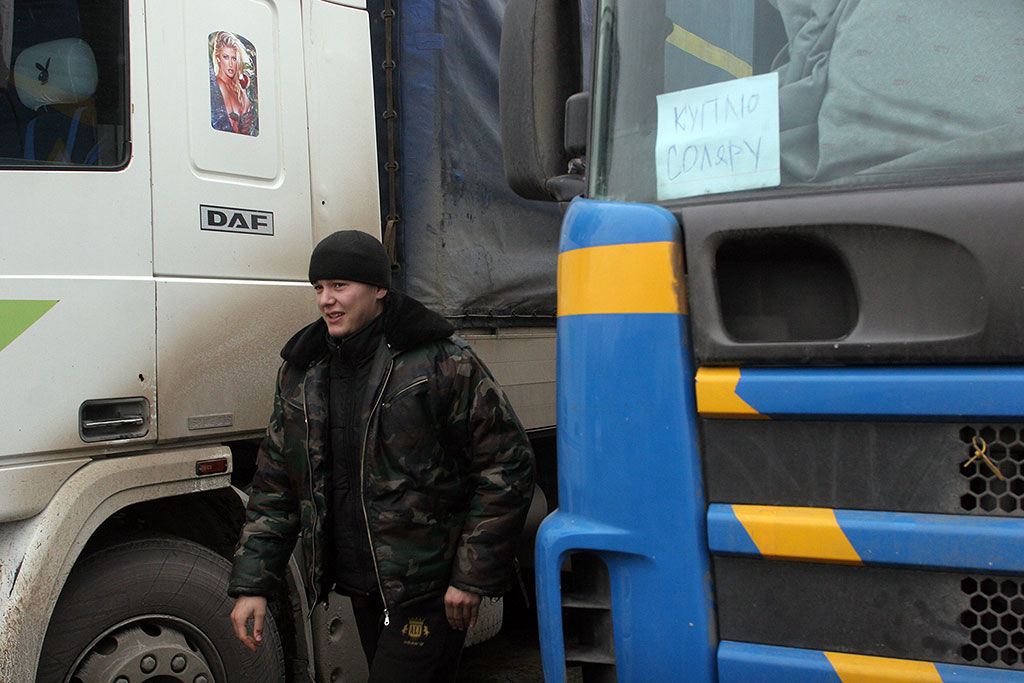 When Plato was launched in November 2015, truck drivers paid 1.53 rubles a kilometer. Four months later, the authorities planned to double the toll, but after negotiations with truckers they made concessions, reducing the toll increase to 25%. Since April 15, 2017, the authorities have charged trucks 1.91 rubles a kilometer. Photo courtesy of Sergei Nikolayev/Vedomosti and RBC
When Plato was launched in November 2015, truck drivers paid 1.53 rubles a kilometer. Four months later, the authorities planned to double the toll, but after negotiations with truckers they made concessions, reducing the toll increase to 25%. Since April 15, 2017, the authorities have charged trucks 1.91 rubles a kilometer. Photo courtesy of Sergei Nikolayev/Vedomosti and RBC 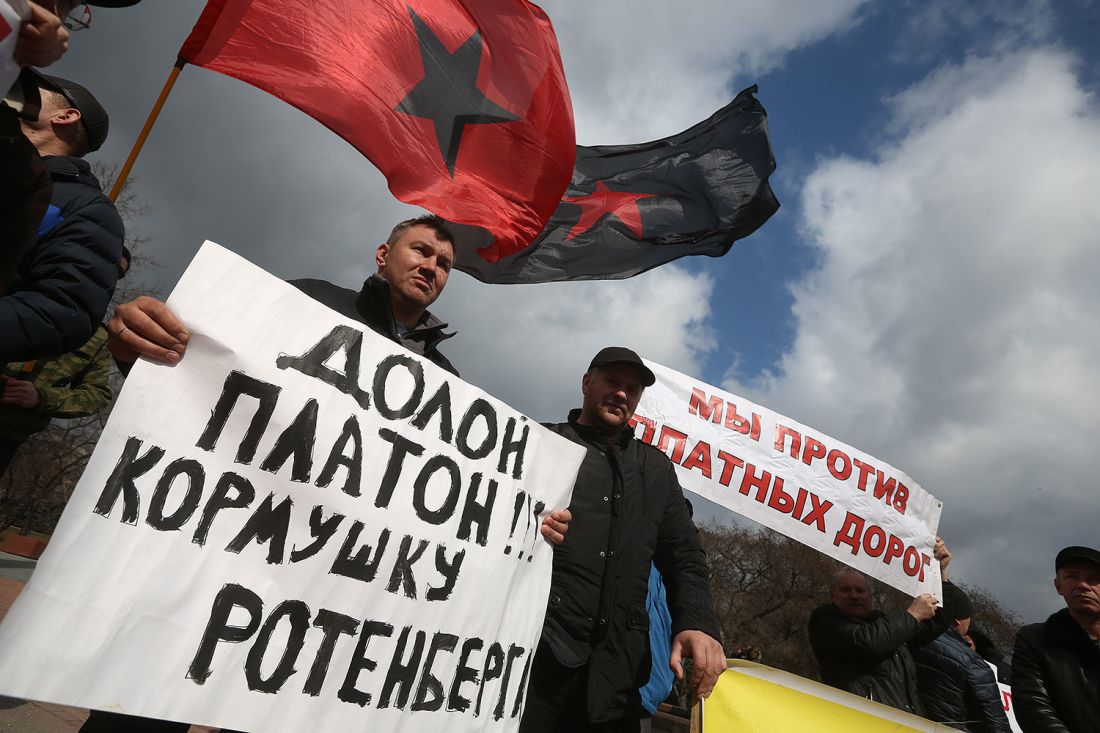 However, even the discounted [sic] toll increase did not sit well with all truckers [sic]. On March 27, 2016, the OPR went on what it called an indefinite nationwide strike. Truckers protested the toll increases and demanded fairness and transparency at weight stations. Photo by Yevgeny Razumny/Vedomosti and RBC. [The slogans read, “Down with Plato!!! It’s Rotenberg’s Feeding Trough” and “We’re Against Toll Roads.”]
However, even the discounted [sic] toll increase did not sit well with all truckers [sic]. On March 27, 2016, the OPR went on what it called an indefinite nationwide strike. Truckers protested the toll increases and demanded fairness and transparency at weight stations. Photo by Yevgeny Razumny/Vedomosti and RBC. [The slogans read, “Down with Plato!!! It’s Rotenberg’s Feeding Trough” and “We’re Against Toll Roads.”] 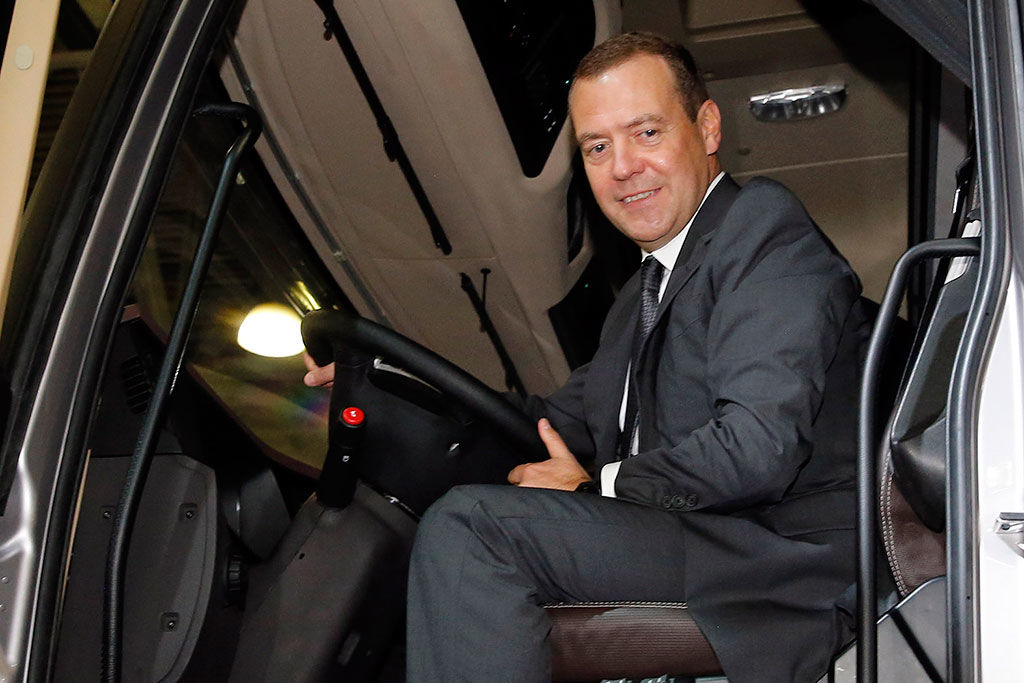 In October 2017, the government approved a bill increasing fines for nonpayment of Plato tolls from 5,000 rubles to 20,000 rubles. If passed, the law would make it possible to charge drivers for violations that occurred six months earlier. The new rules were set to take effect in 2018. Photo of Dmitry Medvedev courtesy of Dmitry Astakhov/TASS and RBC
In October 2017, the government approved a bill increasing fines for nonpayment of Plato tolls from 5,000 rubles to 20,000 rubles. If passed, the law would make it possible to charge drivers for violations that occurred six months earlier. The new rules were set to take effect in 2018. Photo of Dmitry Medvedev courtesy of Dmitry Astakhov/TASS and RBC 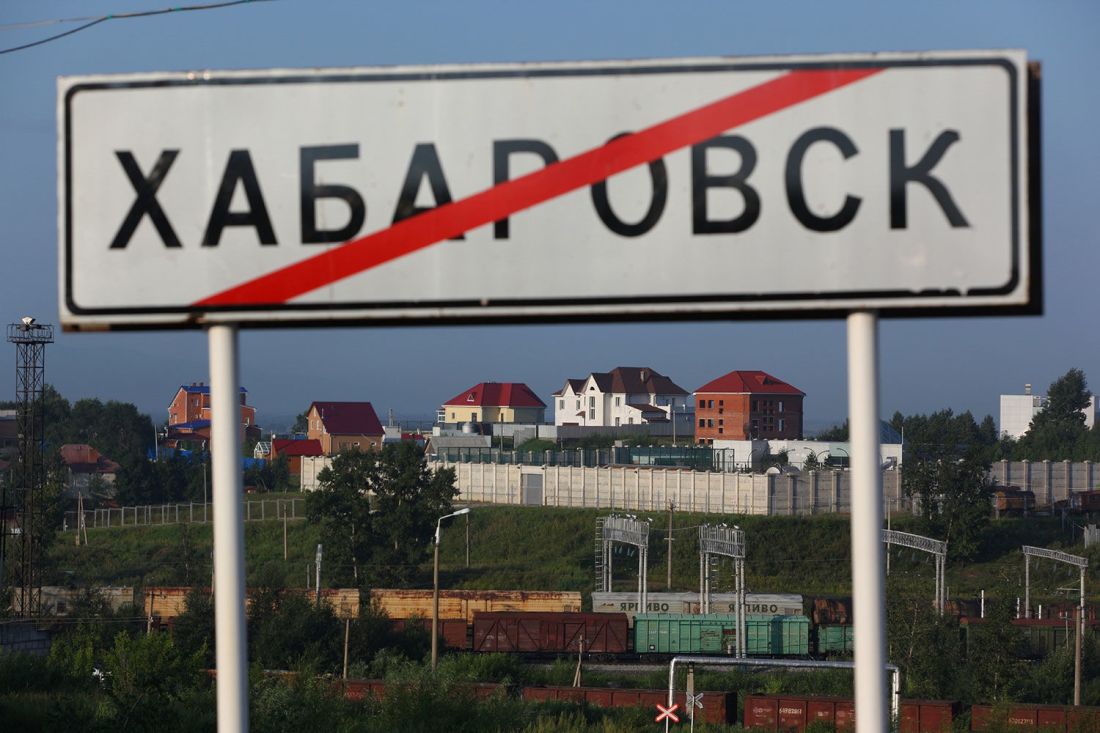 Plato’s database has registered 921,000 vehicles weighing over twelve tons. According to the Russian Transport Ministry, during its first two years of operation, Plato raised 37 billion rubles for the Federal Roads Fund. In the autumn of 2017, the government selected three projects that would be financed by the monies raised by Plato: a fourth bridge in Novosibirsk and bypasses around the cities of
Plato’s database has registered 921,000 vehicles weighing over twelve tons. According to the Russian Transport Ministry, during its first two years of operation, Plato raised 37 billion rubles for the Federal Roads Fund. In the autumn of 2017, the government selected three projects that would be financed by the monies raised by Plato: a fourth bridge in Novosibirsk and bypasses around the cities of 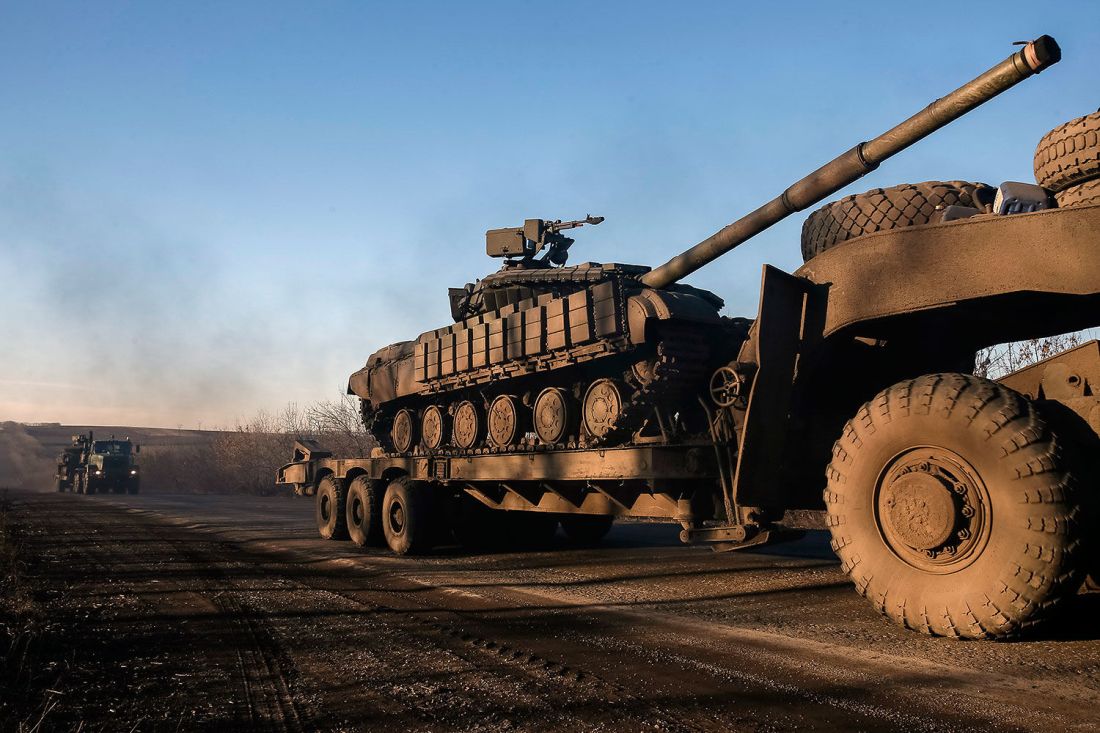 Vehicles that transport people are exempt from Plato tolls, as are emergency vehicles, including vehicles used by firefighters, police, ambulance services, emergency services, and the military traffic police. Vehicles used to transport military equipment are also exempt from the toll. Photo courtesy of Gleb Garanich/Reuters and RBC
Vehicles that transport people are exempt from Plato tolls, as are emergency vehicles, including vehicles used by firefighters, police, ambulance services, emergency services, and the military traffic police. Vehicles used to transport military equipment are also exempt from the toll. Photo courtesy of Gleb Garanich/Reuters and RBC The Russian Justice Ministry insists there have been no violations by Russian law enforcers at protest rallies, but that complainants broke the law themselves. Photo by Yevgeny Razumny. Courtesy of Vedomosti
The Russian Justice Ministry insists there have been no violations by Russian law enforcers at protest rallies, but that complainants broke the law themselves. Photo by Yevgeny Razumny. Courtesy of Vedomosti 



